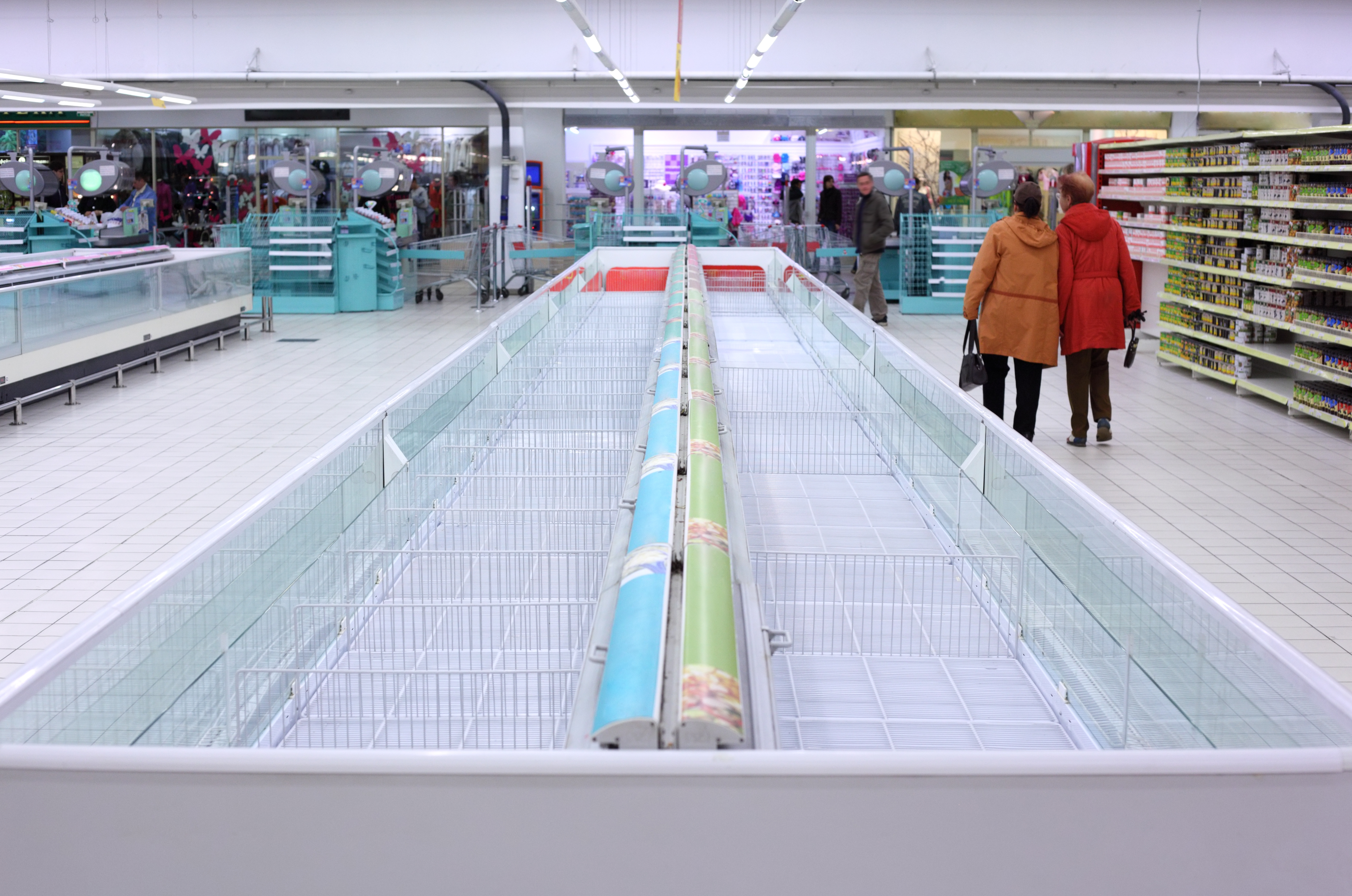
Empty store shelves. Image courtesy of Adobe Stock.
Central planning is one of the major features of socialism. A major consequence of central planning is shortages. The widespread shortages are even more severe in the purest variation of central planning: communism.
Chelsea Follett points out The Shocking Sexism of Central Planning in Human Progress back on 12/6/17. She reports on a book How We Survived Communism and Even Laughed which explains that central planners in the Soviet Union placed low priority on many products that women needed.
Oh, Frederick Engels considered housework unmanly, so the burden of no washing machine, dryers, or other time saving devices fell on women. Severe shortages of makeup, hair dye, and even sanitary napkins (yes, you read that right, basic hygiene was not a production priority in the worker’s paradise) made for a harsh life for women.
Lest you think we are too hard on dear ol’ Engels, that comment comes from Condition of the Working Class in England. In the document, Engels describes the deplorable condition of laborers, especially men who cannot find work in the exploitative system and sit at home doing chores while their wives work in the factories all day. On page 111 he says;
In many cases the family is not wholly dissolved by the employment of the wife, but turned upside down. The wife supports the family, the husband sits at home, tends the children, sweeps the room and cooks. This case happens very frequently; in Manchester alone, many hundred such men could be cited, condemned to domestic occupations.
Notice doing housework is considered to be “condemned?”
He then tells the woeful tale of one poor fellow sitting at home mending his wife’s socks. On page 112 he describes this “insane” situation thusly:
Can any one imagine a more insane state of things than that described in this letter! And yet this condition, which unsexes the man and takes from the woman all womanliness without being able to bestow upon the man true womanliness, or the woman true manliness – this condition which degrades, in the most shameful way, both sexes, and, through them, Humanity, is the last result of our much-praised civilisation, the final achievement of all the efforts and struggles of hundreds of generations to improve their own situation and that of their posterity.
So with that foundational attitude, it is little surprise that at one point the only hair dye available was red so half the women living in Warsaw Poland had the same color hair: red.
In the 1950s Yugoslavia’s central planners declared toilet paper a luxury. Thus, production stopped. People then found the propaganda sheets called newspapers quite useful.
In the 1980s, women throughout the Communist Bloc did laundry the way women did it 50 years earlier, scrubbing clothes on a washboard in a metal tub, then boiling the clothes on the stove because washing machines were also a luxury and thus none were produced. In the 1980s.
Article provides a quote from the book, which was a frequent comment from women living under fully implemented socialism:
“There are no deodorants, perfumes, sometimes even no soap or toothpaste… Worst of all, there are no sanitary napkins. What can one say except that it is humiliating?”
A precise comment at the end of the article explains why central planning produces shortages and thus suffering while capitalism provides abundant options thus a far more enjoyable life:
For all the complaints about the profit motive, markets incentivize people to satisfy each other’s preferences through voluntary exchange, while state-run economies provide no such incentive.
In addition to routine shortages of common items, rampant sexism is yet another central feature of central planning.
0 Comments